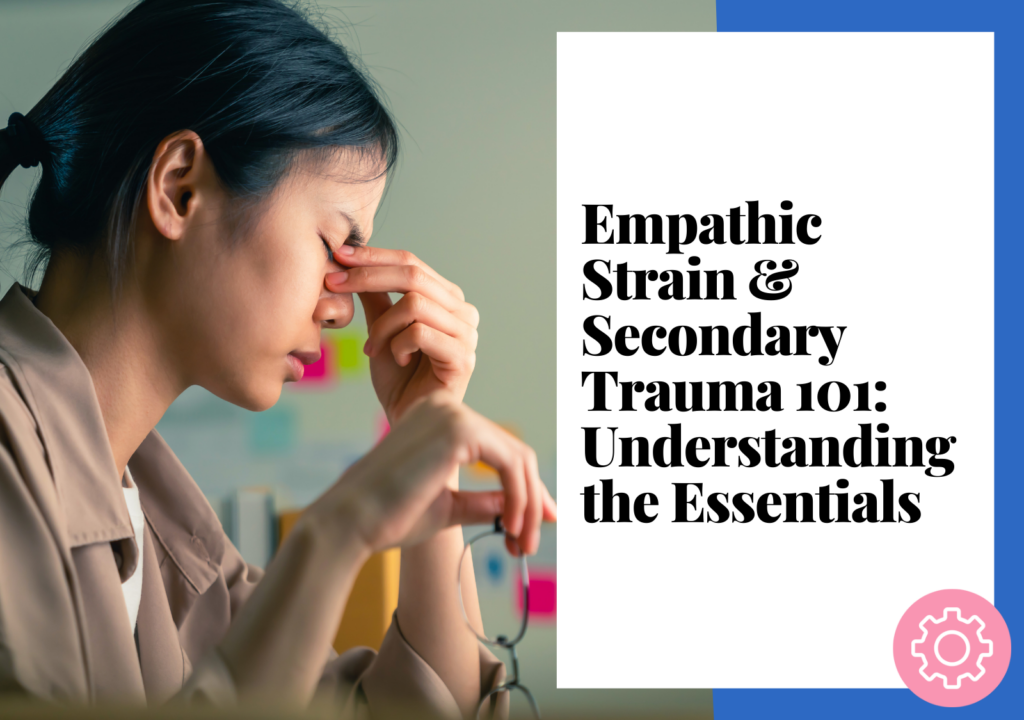Empathic Strain & Secondary Trauma 101: Understanding the Essentials
This training was presented on
November 3, 2023

This training was presented in collaboration with our partner project, the California Evidence-Based Clearinghouse for Child Welfare (CEBC).

TRAINING MATERIALS & RESOURCES:
Click the button below to access the materials and resources from this training, including:
- Pre-recorded version of this webinar
- Note-taking slides (3/page)
- Empathic Strain & Secondary Traumatic Stress 101 Participant Resources Workbook
- Article: Coming Home to Secondary Traumatic Stress
- Video: A Shift in Perspective: Why it’s time to stop using compassion fatigue (42:30)
Training Materials & Resources
Note: You will need to log in to your CalTrin account to access the training materials. You can create a free account here. Training certificates are only available following live trainings or completion of self-paced courses. A certificate will not be provided for review of these materials.
TRAINING DETAILS:
How do we stay well when bearing witness to suffering? What is the impact of hearing, seeing, and reading about trauma daily? Chronic exposure to difficult stories can lead to experiences of empathic strain and secondary traumatic stress.
These occupational hazards are normal and common – particularly when working with people in crisis. This session explores the impact of empathic strain and secondary trauma exposure on the physical and emotional well-being of helping professionals.
Learners will:
- Identify personal risk factors for empathic strain & secondary traumatic stress
- Develop strategies to take stock, reduce trauma exposure, and reset
- Make a plan for sustainable change
Who should attend: All staff of family resource center (FRCs), child abuse prevention councils (CAPCs), community-based organizations, and other child- and family-serving systems.
IMPORTANT TRAINING INFORMATION:
- This is a webinar-style training. This means that you will not be on camera and will not be able to see other learners. This training will not include breakout rooms. Opportunities to interact with the presenter(s) and other participants will be included.
- This training will be recorded. A pre-recorded version of this webinar will be available to registered learners within 2 days of the training.
- By registering for a CalTrin training, you consent to be added to the CalTrin mailing list.
MEET THE SPEAKER
Sarah Stewart is a Registered Social Worker, holding a Bachelor of Social Work from the University of Victoria. She is a certified Mental Health First Aid Basic and Youth instructor, and a facilitator of the program Resisting Vicarious Trauma & Shouldering Each Other Up. Sarah is the founder and lead trainer of Open Minds Mental Health Training and Consulting.
Sarah has developed trainings on trauma-informed practice, boundaries, and workplace mental health for grassroots agencies, non-profits, colleges, and corporations. She is passionate about promoting antioppressive approaches to wellness and sustainability in helping professionals, de-stigmatizing conversations about mental health challenges, and improving mental health-related accessibility.

